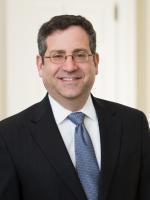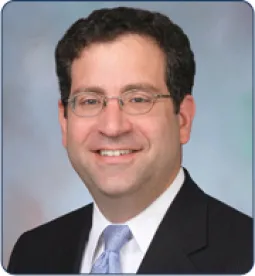Last week’s decision in the off-label promotion case, United States v. Caronia, No. 09-5006-cr (2d Cir. Dec. 3, 2012), is an important blow to the Government’s off-label promotion efforts. In a 2–1 decision, the Court squarely rejected the simplistic theory that the Food, Drug and Cosmetic Act (“FDCA”) imposes a blanket prohibition against off-label promotion by pharmaceutical and device manufacturers, but it does leave open the door to future prosecutions that rely in part on off-label promotion.
In Caronia, the Department of Justice obtained the conviction of Alfred Caronia, a pharmaceutical sales representative, for conspiracy to introduce a misbranded drug into interstate commerce. The FDA prohibits the introduction into interstate commerce of a misbranded drug (or device). 31 U.S.C. § 331(a). A drug is misbranded if, among other ways, its labeling fails to contain “adequate directions for use,” 21 U.S.C. § 352(f), which the FDA defines as “directions under which the layman can use a drug safely and for the purposes for which it is intended.” 21 C.F.R. § 201.5. According to FDA regulations, a drug’s intended use depends on the “objective intent of the persons legally responsible for the labeling of drugs,” which may be proven by, among other evidence, “oral or written statements by such persons or their representatives” and “the circumstances that the article is, with the knowledge of such persons or their representatives, offered and used for a purpose for which it is neither labeled nor advertised.” 21 C.F.R. § 201.128.
Caronia was employed by Orphan Pharmaceutical, Inc. to work as a “specialty sales consultant” in Queens, and in Nassau and Suffolk Counties, New York. He allegedly promoted Xyrem, a central nervous system depressant approved to treat narcolepsy patients who experience excessive cataplexy (a condition associated with weak or paralyzed muscles) or who have excessive daytime sleepiness. At trial, the Government introduced evidence that Caronia urged physicians on Orphan’s speaker panels to mention that Xyrem could be used for fibromyalgia, chronic fatigue and other unapproved conditions, and for patients under age 16, an unproved subpopulation. Caronia was not accused of promoting false information about the drug, just of off-label promotion. A jury convicted Caronia, and he was sentenced to one year’s probation and 100 hours of community service.
The Second Circuit reversed the conviction. It held that the FDCA does not expressly prohibit truthful speech about the off-label uses of a drug. In addition, the Second Circuit held that the First Amendment protected Caronia’s speech.
The Government had argued that Caronia was not being prosecuted for speech. According to the Government, the crime was the conspiracy to introduce a drug into interstate commerce without adequate directions for use, and evidence of off-label promotion was introduced as evidence that Xyrem had acquired a new intended use other than treating narcolepsy patients with cataplexy or excessive daytime sleepiness. The Second Circuit rejected the Government’s argument. It concluded from the trial record that the government prosecuted Caronia for mere off-label promotion and that the district court instructed the jury that it could convict on that theory.
The Second Circuit pointed out that the government “repeatedly argued that Caronia engaged in criminal conduct by promotion and marketing the off-label use of Xyrem.” It stated that “the government’s assertion now that it used Caronia’s efforts to promote Xyrem for off-label use only as evidence of intent is simply not true.” The Second Circuit emphasized that “[t]he government never argued in summation or rebuttal that the promotion was evidence of intent,” “[t]he government never suggested that Caronia engaged in any form of misbranding other than the promotion of the off-label use of an FDA-approved drug,” and “[t]he government never suggested, for example, that Caronia conspired to place false or deficient labeling on a drug.” In sum, the government’s summation and the district court’s instruction “left the jury to understand that Caronia’s speech was itself the proscribed conduct” and “that pharmaceutical representatives are prohibited from engaging in off-label promotion.”
Furthermore, the Court held that the First Amendment bars the prosecution of truthful off-label speech. It reasoned that a prohibition against off-label promotion by pharmaceutical manufacturers would not be a narrowly drawn means of advancing a legitimate governmental interest. According to the Second Circuit, restricting speech regarding off-label uses did not directly advance the government’s interest in preserving the effectiveness and integrity of the FDA’s drug-approval process, since physicians were free to prescribe drugs off-label, and it is expected that they will do so.
In sum, the Caronia decision squarely rejects the prosecution theory that promotional speech itself is unlawful under the FDCA. This decision will make it more difficult for the government to prosecute rogue sales representatives for truthful off-label promotion.
The Second Circuit’s decision, however, does leave open the possibility that the government could rely on off-label promotional evidence to demonstrate that a pharmaceutical company had the “objective intent,” under 21 C.F.R. § 201.128, that its drug be used for non-approved indications. The government would presumably have to prove that the off-label promotion was part of a broader corporate off-label program, and that therefore the company’s labeling was inadequate.
It is likely that the Government will seek further review by the entire Second Circuit or by the Supreme Court.
The decision can be found here.




 />i
/>i
